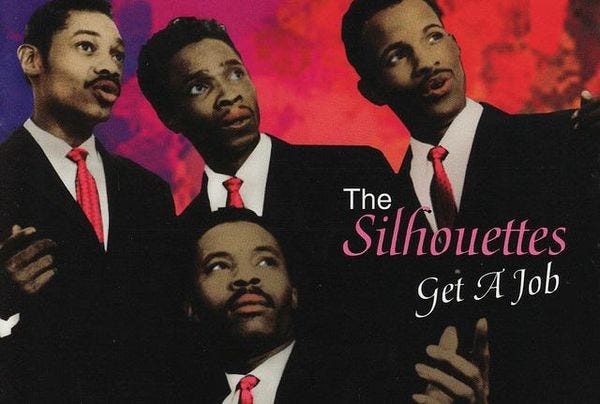4.3 Million Americans Quit Or Changed Jobs In December, COVID Economy Just Nutty Like That
The 'Great Renegotiation' continues.
A new survey by the Bureau of Labor Statistics — not the monthly employment report; that comes out Friday — found that roughly 4.3 million Americans quit or changed their jobs in December 2021, a bit lower than the record high number of voluntary job departures— 4.5 million — in November. The "Job Openings and Labor Turnover" survey also found there were about 10.9 million job openings in December, which helps explain, in part, why people are skipping out of some jobs for better paying work. The surge in COVID cases caused by the Omicron variant added to the strange labor market, as the Washington Post explains:
Parents scrambled to navigate their work lives as schools and day cares closed due to growing virus cases. Employees grappled with sudden outbreaks at work, with little of the social safety net protections or pandemic-controlling measures that helped cushion the blow from earlier waves. [...]
These forces magnified the desire for many workers to quit their jobs. At least 4 million workers resigned each month during the second half of 2021, with many of them departing to find work that had better pay, better benefits or more flexible schedules.
Sucker for peer pressure that I am, I want to make clear now that despite this trend, I intend to stay at Wonkette until President Ivanka Trump orders us closed but feels very sad about it.
Economist Nick Bunker, of the employment site Indeed.com, told the Post it didn't look like Omicron had a huge effect on demand for workers, at least not in the December figures:
“It really paints this picture of a job-switching boom,” he said.
The firm’s own data on the volume of job postings showed that the bigger omicron hit took place in January, he said. That’s when a record number of Americans missed work because they were sick or they were taking care of people who were sick.
Just reading the name "Indeed.com" makes me want to listen to a podcast. Pretty much any podcast; Indeed sponsors all of 'em.
Also too, layoffs are at a record low (0.8 percent,) which the Post says suggests that even with Omicron out there, employers are trying to hang on to the employees they have.
“The labor market has given many people more opportunities but provided security for people who do have a job,” Bunker said. “Anyone who had a job in December was less likely to have lost it than any previous time over the last 20 years."
We have no doubt that Fox will find a way to make that seem ominous. Employers are afraid that laying off employees means they'll have to pay even more to hire new ones!
December's report was the fourth time in 2021 that the Bureau of Labor Statistics saw record numbers of people quitting or changing jobs. For now, at least, it really is a labor-seller's market for all us units of human capital out there:
The number of unemployed workers per job opening remained at or near a record low, with more than 1.7 jobs for every unemployed worker. Julia Pollak, an economist at ZipRecruiter, said the number of job listings in January amounted to 55.8 percent more than pre-pandemic averages. In other calculations that show how much the pandemic has upended traditional economic patterns, layoffs now amount to just 20 percent of overall separations, about half of what was typical before March 2020, Pollak said.
“It shows that before omicron we had the best job seekers’ market ever, and it just kept growing more and more favorable for workers,” she said. “Workers have more job security than ever before.”
2021 was, overall, a really good jobs year, with an average of 500,000 jobs being added per month, but the economy as a whole still has three million fewer jobs than it did at the start of the pandemic. The job market has been complicated by the fact that a lot of people are still uneasy about going back to work while the disease is still out there, not to mention the fact that a lot of people won't wear masks or get vaccinated. Plenty of people have also decided to stay home with their kids, since daycare isn't available (pass the goddamn Build Back Better, please!) and many people have just said the hell with it and taken retirement early. About two million people have left the labor force, WaPo says. There may too be a lack of immigrants lately, we feel like that might be a contributing factor.
Also too, if you're wondering just what the hell it means that all these people quitting and getting new work and in some case not going back to work, at least not in the same jobs, check out this neato discussion at NPR's "Planet Money," which suggests we're not so much seeing a "great resignation" as a "Great Renegotiation" of American attitudes toward work and what matters, driven in part by this strange economic time we're all going through. Very cool thinky stuff!
[ WaPo / Bureau of Labor Statistics / NPR ]
Yr Wonkette is funded entirely by reader donations. If you can, please give $5 or $10 a month to keep us gainfully employed!
Do your Amazon shopping through this link, because reasons .




If you can say that, I'm guessing you do not have a degree in Management from a school of Business.
Absolutely correct. The only thing is, your point 3). They keep employees under 30 hours to keep them out of benefits. That incentive is one of the very worst aspects of ACA.
Meanwhile, the employee puts in a minimum of 60 hours a week, between work, going to and from work, and sitting around just in case they get the call. In return for poverty-level income and no benefits.